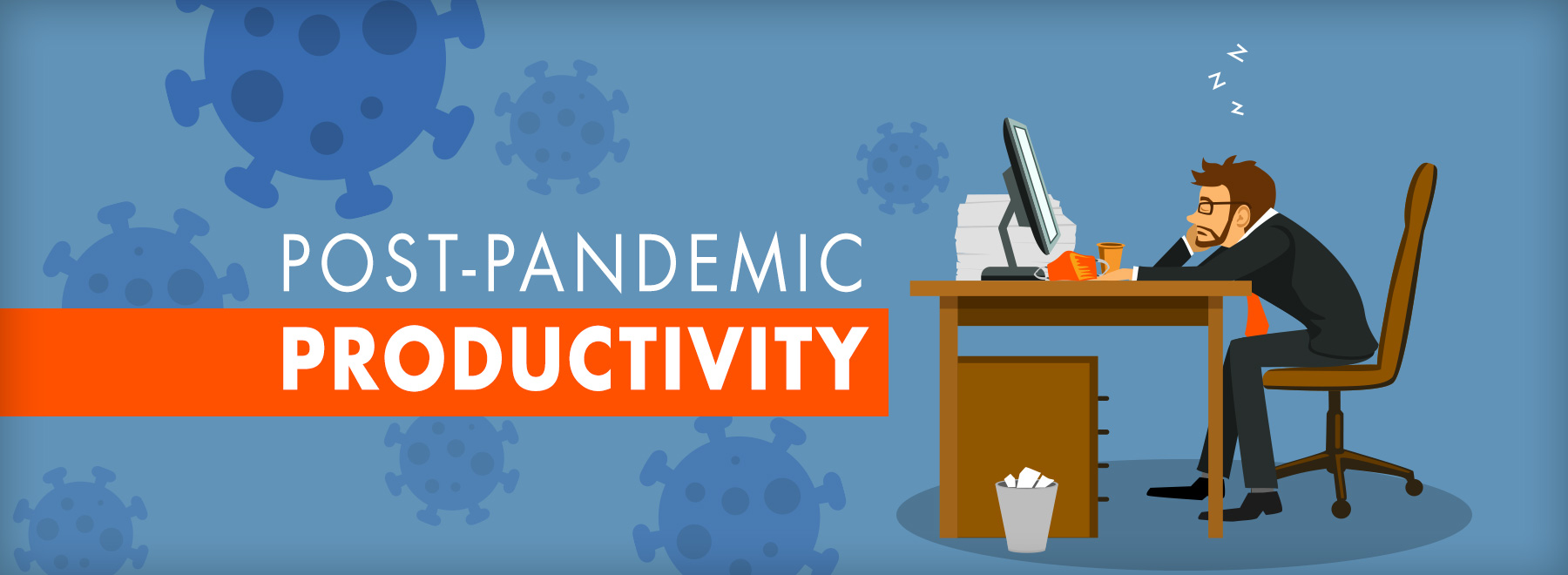How to set your body clock for abrupt return to in-person work
The more flexible work hours many employers now offer in the wake of the COVID-19 pandemic have been a blessing for those who have extended daily commutes, must juggle undependable school or daycare schedules or simply perform better without the typical distractions of an office setting.
But for the many employees who have been summoned back to the daily office grind after several months of working remotely, one malady has become all too common: the “post-pandemic hangover.”
According to researchers at the University of Exeter, an abrupt shift in natural sleep patterns caused by the mandatory return to in-person work can have a negative effect on health. The study suggests more adaptable working habits may actually be beneficial to individuals’ well-being.
So what about those forced to readjust to the daily 8-to-5 schedule? Is it possible for them to overcome the negative effects of returning to in-person work?
First, it may be helpful to understand what the terms “sleep pattern” and “body clock” actually mean and how they relate to one another.

“A sleep pattern is the usual time an individual has chosen to go to bed and to awaken in the morning,” said Dr. Ini-Abasi “Joyce” Olutade, assistant professor of family medicine and medical director of student/employee health at the University of Mississippi Medical Center. “The body clock, or rather the body’s biological clock, is an individual’s natural ‘timing device’ which sets the time one would naturally fall asleep and awaken in a 24-hour cycle.
“Some persons are ‘morning larks’ who awaken early each day without the use of an alarm and fall asleep early - long before midnight - at about the same time each night. Others are described as ‘owls’ who naturally fall asleep very late at night and awaken much later in the morning. When someone who is a ‘morning lark’ works a night shift, they would be forced to set a sleep pattern which is contradictory to their normal biological clock sleep and waking time.”

Dr. Mohammad I. Ullah, associate professor of medicine and previous director of the Sleep Medicine Fellowship Program at UMMC, said the time a person feels sleepy in the evening and the time an individual naturally awakens from sleep in the morning are determined by an important factor called the “circadian rhythm.”
“The circadian rhythm controls the release of some neurotransmitters that regulate the feeling of sleepiness and wakefulness,” Ullah said. “It is located in the hypothalamus of the brain. This allows us to start feeling sleepy in the late evening so that we can fall asleep. The same clock will allow release of neurotransmitters, which will make us awake in the morning.
“This natural or normal sleep pattern is important because when we do not adhere to this sleeping schedule and tend to override it by staying up late or going to bed too early, we tend to have sleep deprivation, in the former case, or sleep onset insomnia, in the latter case.”
Olutade said the importance of matching one’s sleep pattern to his or her body clock cannot be overstated.
“Regular restful sleep gives one the physical energy to tackle each day’s physical demands, one is able to focus better, our memory is enhanced, our immune system functions optimally and we are more likely in a good mood,” she said. “Chronic sleep deprivation has been linked to obesity, type 2 diabetes, cardiovascular disease, depression, decreased immunity and increased risk for certain cancers . . .increased risk of accidents, too.
“Workers have a higher risk of workplace injuries and errors when sleep deprived.”
Especially when they resort to artificial measures to help get them through the workday, Ullah said.
“You may end up drinking coffee, energy drinks, etc. during the day to keep yourself going,” he said. “But this caffeine will stay in your system for four-to-eight hours, depending on how much you consumed, resulting in difficulty falling asleep the next evening, even if you go to bed at your normal bedtime.”
As the COVID-19 pandemic dragged on and more and more people began working from home, Ullah said certain factors made it difficult for them to maintain the sleep patterns to which they had become accustomed.
“People are no longer constrained by the need for strict bedtime and wake-up time as the work from home time is often flexible,” Ullah said. “Some may have even started taking daytime naps.
“It may take a few months to fully get back to the desired pre-Covid sleep-wake schedule.”
Olutade said during the pandemic, many adults did not have a fixed daytime start for their work and therefore did not maintain a consistent sleep-wake pattern.
“As we return to in-person work, individuals will have to return to a regular bedtime schedule,” she said. “It takes our bodies some time to readjust after our regular sleep pattern has been disrupted.”
So what can those forced to return to pre-pandemic work schedules do to readjust to their long-abandoned sleep patterns? Ullah suggests they should start making changes while they’re still working from home. Olutade and he have some suggestions.
- Set consistent bedtime and waking schedules.
“The Sleep Foundation suggests making 15- or 30-minute incremental changes every few days,” Olutade said.
“Someone who has been going to bed at midnight but wants to go to bed earlier should go to bed at 11:30 p.m. for two or three days and then change to 11 p.m. for a few more nights. Adjust every few days until one reaches the optimal bedtime.
“It will take several days or a few weeks for the body to readjust.” - Start “winding down” at least an hour before the scheduled bedtime.
“Cut down on screen time and time watching movies. Stop reading emails,” Olutade said. - Fight the urge to “doze off.”
“Avoid daytime naps,” Ullah said. - Exercise regularly, with one caveat:
“Exercise is helpful,” Olutade said, “but avoid exercising close to the scheduled bedtime.”
In fact, Ullah suggests avoiding all stimulation right before sleeping.
“Refrain from stimulating activities before the desired bedtime, such as heavy exercise, watching an intense movie or playing intense video games,” he said. - Get exposed to sunlight during the day.
“If you’re working indoors with no office windows, go outside during lunch or break time for some natural sunlight exposure,” Olutade said. - Watch what you drink - especially at night.
“Minimize or eliminate caffeine, nicotine and alcohol in the afternoon and evening,” Ullah said. - Stay cool.
“Keep the room temperature cool in the summer and warm in the winter, comfortable enough to enhance sleep,” Olutade said. - Don’t bring a television into the bedroom.
“Avoid using electronic screens - phone, TV, etc. - at least two or three hours before bedtime,” Ullah said.
“If you already have a TV in the bedroom, discipline yourself to turn it off at least an hour before bedtime,” Olutade said. - Set the mood for sleep.
“Relax mentally and spiritually through meditation, reading - no horror stories! - or soothing music,” Olutade said. “Soft lighting when winding down is helpful.
“Some individuals sleep better when the room is completely dark. Use light-blocking shades in windows and doors. If you have a sleep partner, discuss your room light and temperature preferences.” - Don’t try to “catch up” on sleep.
“Avoid sleeping in on weekends more than 30 minutes past the weekday wake-up time,” Ullah said. - Ladies of a certain age should consider additional remedies.
“Women who are peri- or post-menopausal should avoid spicy foods and wear cotton sleepwear if they are experiencing hot flashes and night sweats at night.” Olutade said.
If you fight your body clock, Ullah said it will definitely fight back.
“You will win in the short term by being able to stay up late,” he said, “but this will invariably lead to long-term sleep deprivation. So no one wins in the long run.”
For those who have seemingly damaged their body clocks almost beyond repair, medication may even be of some assistance.
“Coupled with behavioral changes, melatonin is one of the helpful agents that is commonly used by sleep doctors to adjust the body clock,” Ullah said. “If you cannot sleep early like you used to do before, you may take 3-5 mg of melatonin about 90 minutes to two hours before the desired bedtime.
“For example, if your bedtime now is 1 a.m. and you wish to go to bed at 10 p.m., take the melatonin at around 8 or 8:30 p.m. This will not make you sleepy at 10 p.m., but it will slowly pull back your body clock sleep onset time from 1 a.m. to 10 p.m. over the next few weeks.”
Olutade said it’s best to consult a physician before starting any medical regimen.
“If one is still having difficulty developing a restful sleep habit,” she said, “contact your primary care physician.”
To make an appointment with a sleep medicine specialist at UMMC, call 1-888-815-2005 or visit /Healthcare/Sleep_Medicine/Sleep_Medicine_Home.html
The above article appears in CONSULT, UMMC’s monthly e-newsletter sharing news about cutting-edge clinical and health science education advances and innovative biomedical research at the Medical Center and giving you tips and suggestions on how you and the people you love can live a healthier life. Click here and enter your email address to receive CONSULT free of charge. You may cancel at any time.



